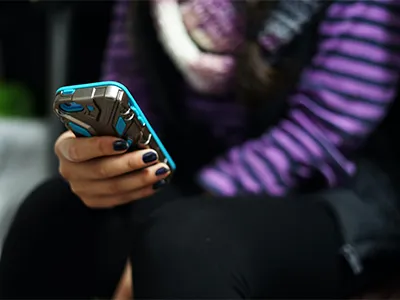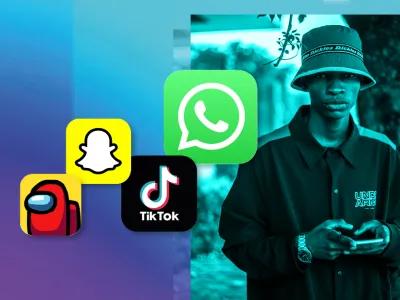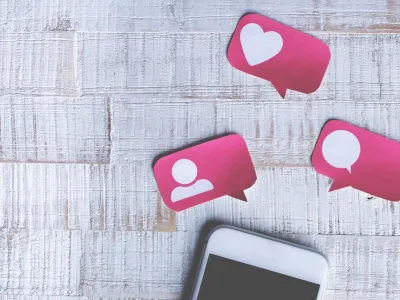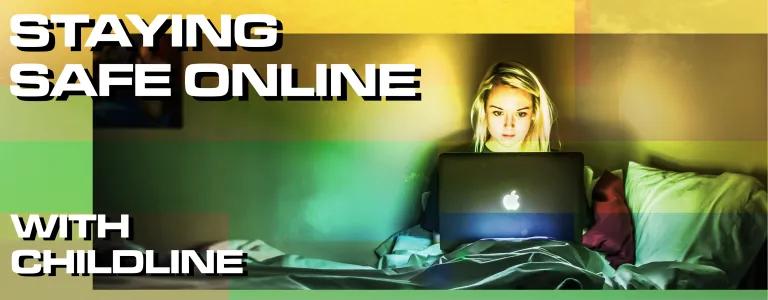
Staying Safe Online, With Childline
Include this article in your Skills Builder Journal. It could help you develop... 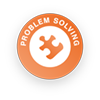
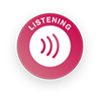
We all go online, but how safe is it really? And what can we do to make sure we protect ourselves? Childline gives their top tips and advice...
Being online is a big part of many young people’s lives and you may use the internet for numerous things including completing school work, keeping entertained and staying in contact with family and friends.
Although the online world can be great for many reasons, it’s important that you remember that it can also pose risks. At Childline, we speak to thousands of children and young people each year about a variety of different dangers they’ve faced online. Some young people tell us they’ve experienced bullying, whereas others have been groomed or pressured to share information or images that are then used to blackmail or humiliate them.
One girl, aged 14, who contacted Childline said: “I don’t know what to do because this Instagram account keeps posting pictures of me and they keep saying they’re going to follow my friends so they can see them too. It all started after I shared naked pics with someone who I thought was a friend but it turned out to be a fake account. I just feel so hopeless and I don’t know how to make it stop”.
We want to remind all young people of the things you can do to help ensure you enjoy using the online world safely.
Think before you post
Before uploading a photo or video think about whether you’d want your parents, carers, teachers, or future employers seeing it. It’s important to consider what you are sharing online because once you post something, you lose control of it, especially if someone else screenshots or shares it.
Don’t share personal details
It’s important you keep identifying information like your address, phone number, full name, school and date of birth private, and check what people can see in your privacy settings on your social media accounts. Remember that people can use small clues like a school logo in a photo to find out a lot about you.
Think about who you’re talking to
There are lots of ways people can try to trick you into trusting them online. Even if you like and trust someone you’ve met on the internet, it’s important that you never share personal information with them like your address, full name, or where you go to school.
Never give out your password
You should never give out your password or login information. Make sure you pick strong, but easy to remember passwords.
If something has happened online that is worrying or upsetting you, it’s also essential that you know you aren’t alone and there are things you can do to help make that situation better and people you can turn to for help and support.
Firstly, it’s important to speak to an adult you trust about what is happening. This could be your parent, carer, a teacher, or you can always speak to Childline. Sharing what is going on will help you feel less alone and that adult will be able guide and support you with this situation.
If you are being bullied online you can report this and block the person who is bullying you on any given app or website you are using. This will prevent them from contacting you on that platform in the future and can work to get any upsetting content removed.
If someone is threatening or blackmailing you, tell the police by making a report to the Child Exploitation and Online Protection Command (CEOP), who are a law enforcement agency helping keep children and young people safe from abuse online.
If you have sent someone a private nude image, that has then been shared online, you can report this using the Report Remove tool on the Childline website. The Internet Watch Foundation will then work to get this image removed and prevent it being shared anywhere else. You can also report an image that you are worried that may be shared online in the future.
For further advice and support on how to stay safe on the internet whilst enjoying your online life, you can visit the Childline website where you can find information about cyberbullying, feeling good on social media, sexting and sending nudes, online grooming and much more. You can also access the Childline message boards, where you can speak with other young people who may have had similar experiences. For further support you can also call to speak with one of our trained Childline counsellors on 0800 1111 or you can get in touch via our 121 chat on the website. Our counsellors are always here to listen, no worry is ever too small and the conversation will be completely confidential.


